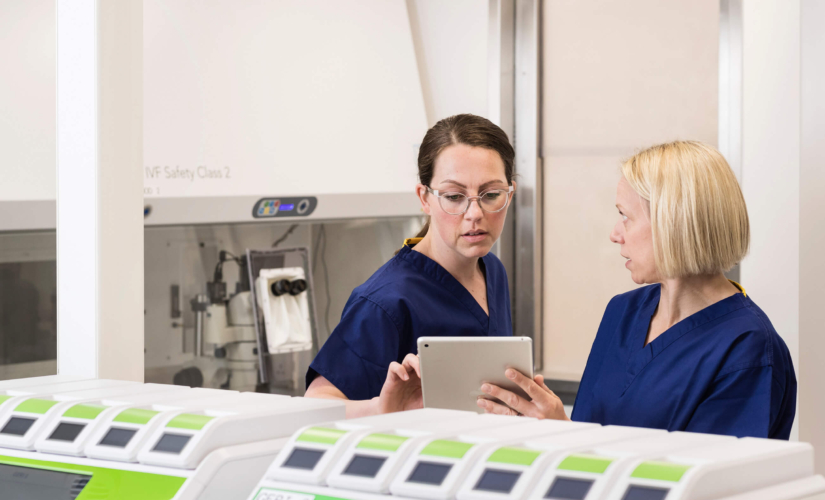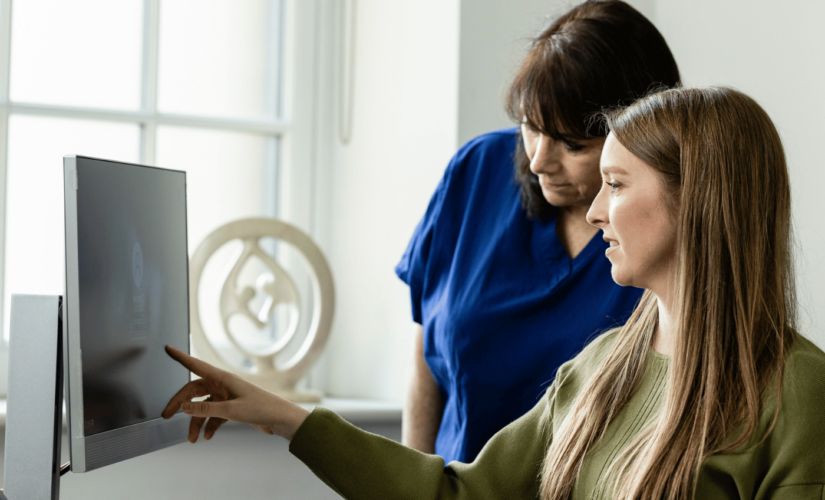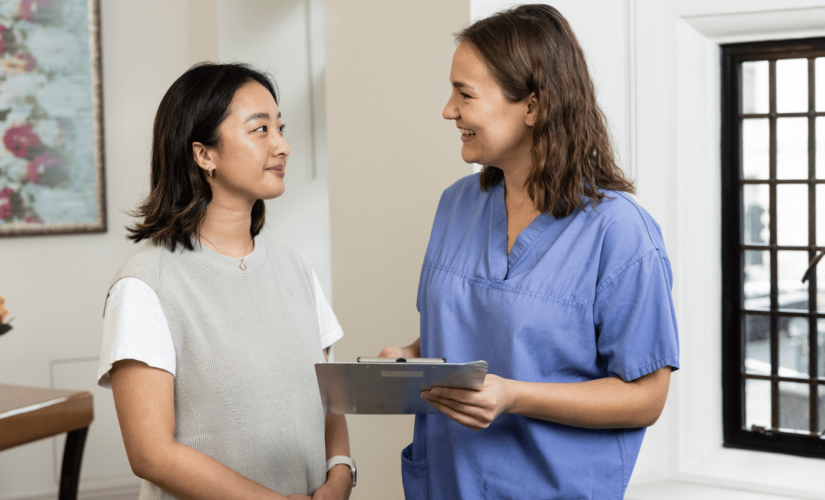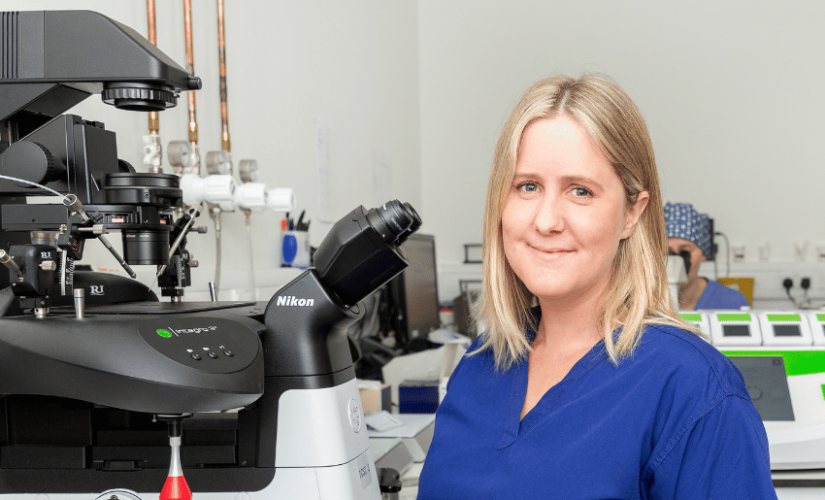PGT-A Maximising fertility treatment outcomes
At The Evewell, we don’t just focus on achieving a pregnancy but on ensuring a live birth. A significant reason IVF fails, or a patient experiences recurrent miscarriage, is because of chromosomal abnormalities within the embryo. But the addition of PGT-A to an IVF cycle ensures only chromosomally normal embryos are transferred, possibly shortening the time needed for a successful pregnancy.
Why add PGT-A to an IVF cycle?
Preimplantation Genetic Testing for Aneuploidies (PGT-A, formerly known as PGS), is a procedure that checks for the presence of an abnormal number of chromosomes in embryos before the embryo transfer in IVF.
Preimplantation Genetic Testing at The Evewell
Honest conversations
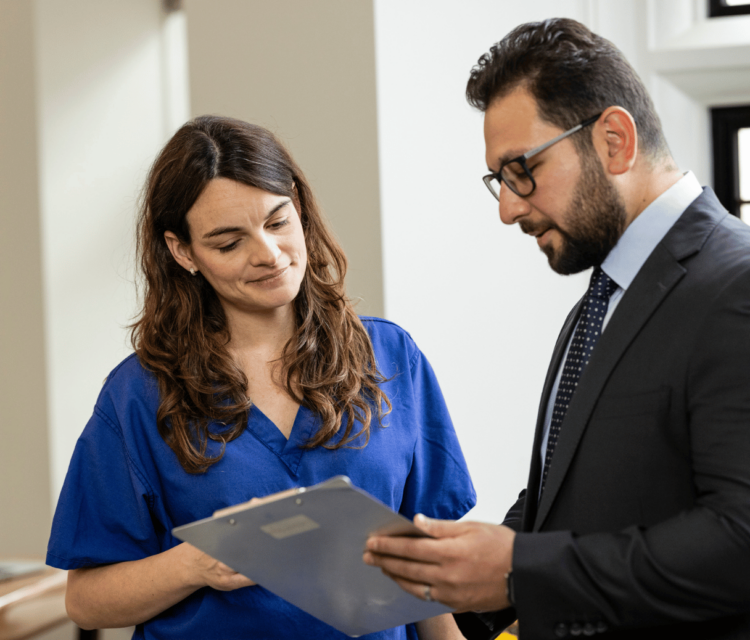
We take the time to understand your previous fertility history.
We only believe in open and honest conversations when it comes to fertility treatment, and genetic testing is no exception.
PGS is not suitable for all patients, but if one of our consultants and embryologists makes a recommendation to include PGS as part of your fertility treatment, they will take the time to explain why and how this will impact your chances of a successful pregnancy.
Our lab team
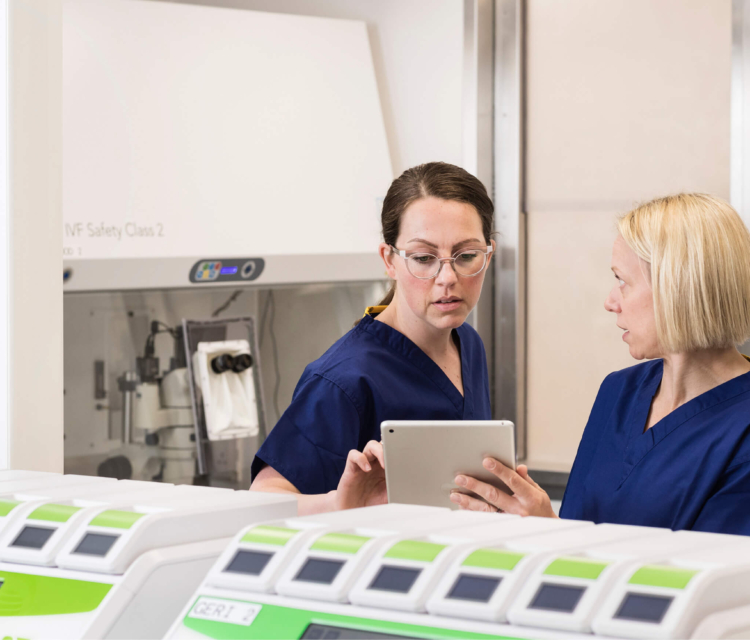
You'll have access to our world-class embryology team
Our lab team are leaders in their field, and specialists in pre-implantation genetic testing.
This team are both a vital part of The Evewell and your fertility journey. With a deep understanding not only in embryology but also human genetics, you’ll get access to this integral team, allowing you a fundamental understanding of the whole reproduction process from beginning to end.
Giving you the facts

Be in control of your fertility, from the very start
Unique to The Evewell is patients will have a consultation with one of embryology team, who will be fully involved in your journey.
During this meeting, usually before you commence your treatment, the team will take time to fully explain the full PGT-A process.
How does PGT-A fit into an IVF or ICSI cycle?
There are several different reasons why you may not be getting pregnant or experiencing recurrent miscarriage, and whereas PGT-A doesn’t fix everything, it can help make informed decisions for future fertility treatment plans, and may also shorten the length of time needed to achieve a successful pregnancy.
PGT-A
Understanding Why
PGT-A
Understanding Why
If you’re not achieving a successful pregnancy, either due to infertility, failed implantation or recurrent miscarriage, the first step of your journey at The Evewell is to meet with one of our consultants and understand how PGT-A can work alongside other treatment plans to improve your outcome.
PGT-A
Our embryology team
PGT-A
Our embryology team
Unique to The Evewell is having access to our embryology team who will take the time to walk you through the steps involved, explaining how PGT-A can help you on your fertility journey and answer any questions.
PGT-A
What happens?
PGT-A
What happens?
You will commence your IVF or ICSI cycle on your schedule, and after egg collection and insemination, our highly skilled embryologists will remove a few cells from the embryo, which will then be tested for any chromosomal abnormalities.
The embryos are then frozen whilst we await the results of the genetic testing.
PGT-A
Informed decisions
PGT-A
Informed decisions
Approximately two weeks later, you will receive your results and we will arrange for you to meet with both your consultant and an embryologist to discuss either repeat cycles, or any further treatment before frozen embryo transfer can commence.
PGT-A
Improving chances
PGT-A
Improving chances
Several studies show a significant increase in live birth rates per embryo transferred and a decrease in miscarriage rates.
They also demonstrate constant low miscarriage rates across all age groups after the transfer of a normal embryo; however, it should be noted that there is no guarantee against a miscarriage occurring despite PGT-A being performed.
How much does PGT-A cost?
We know that fertility treatments are not only an emotional commitment but also a financial one too, and with the ultimate goal of finding the quickest, easiest, and least invasive way to get you pregnant, we’ve made sure our prices are competitive.
We always recommend to patients that when comparing prices between clinics they ensure that they have prices for all the elements that a clinic expects a patient to pay for.
Contact one of our Patient Services team today to further discuss treatment costs.
